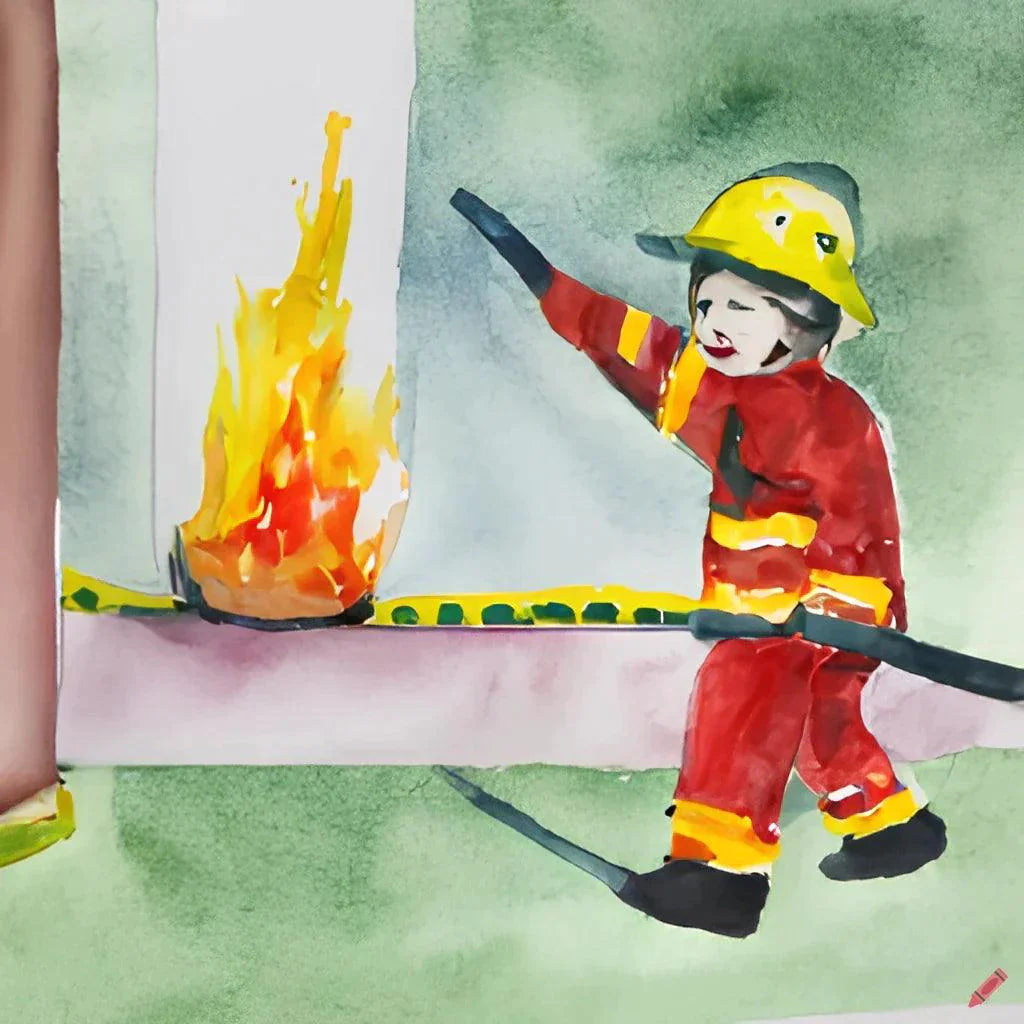When it comes to keeping children safe, fire safety is one of the most important things parents need to consider.
Every year, thousands of children are injured or even killed in house fires. However, with the right information and tools, parents can significantly reduce the risks of a fire occurring and keep their children safe. In this ultimate kids fire safety guide, we will provide you with the essential tips and tools you need to protect your children from house fires.
The Importance of Fire Safety for Kids Subheading: Why Fire Safety Should be a Top Priority for Parents
Every year, thousands of children are injured or killed in house fires. Children are particularly vulnerable to fire-related injuries because they may not be aware of the dangers or may not know how to respond if a fire breaks out. As a parent, it is your responsibility to take steps to reduce the risk of a fire and to educate your children on how to stay safe in case of a fire.
Fire Prevention Tips for Your Home Subheading: How to Keep Your Home Safe from Fire Hazards
One of the best ways to keep your children safe from fires is by preventing them from happening in the first place. Here are some essential fire prevention tips that can help reduce the risk of fire in your home:
- Install Smoke Alarms: Smoke alarms are a must-have in every home. They provide an early warning in case of a fire and can save lives. Install smoke alarms in every room of your home and test them regularly to make sure they are working correctly.
- Avoid Overloading Electrical Outlets: Overloading electrical outlets can cause a fire. Make sure to use power strips with built-in surge protectors, and avoid using too many electrical devices at the same time.
- Keep Flammable Items Away from Heat Sources: Flammable items such as curtains, blankets, and papers should be kept away from heat sources, including stoves, heaters, and fireplaces.
- Store Chemicals Safely: Chemicals, including cleaning products and gasoline, should be stored in a safe location away from heat sources and out of reach of children.
Fire Escape Plan for Your Family Subheading: How to Create an Effective Fire Escape Plan for Your Family
In case of a fire, having a fire escape plan is essential. Here are some tips for creating an effective fire escape plan for your family:
- Plan Your Escape Routes: Identify the best escape routes from each room in your home. Make sure that everyone in your family knows how to exit the house quickly and safely.
- Choose a Meeting Place: Choose a safe meeting place outside of your home where everyone can gather after escaping the fire.
- Practice Your Fire Escape Plan: Practice your fire escape plan with your family at least twice a year. Make sure that everyone knows what to do in case of a fire.
Fire Safety for Kids Subheading: Teaching Your Kids How to Stay Safe in Case of a Fire
Teaching your children how to stay safe in case of a fire is essential. Here are some tips for teaching your children about fire safety:
- Stop, Drop, and Roll: Teach your children how to stop, drop, and roll if their clothes catch fire.
- Stay Low: Teach your children to stay low and crawl to safety if there is smoke in the air.
- Never Hide: Teach your children to never hide if there is a fire. They should leave the house immediately and go to the safe meeting place.
- Test Smoke Alarms: Teach your children what smoke alarms sound like and how to test them regularly.
Frequently Asked Questions
Q: When should I replace my smoke alarms?
A: Smoke alarms should be replaced every ten years, as they can lose their sensitivity over time. It is also recommended to test your smoke alarms monthly to make sure they are working correctly.
Q: Can children use fire extinguishers?
A: It is not recommended for children to use fire extinguishers. In case of a fire, children should leave the house immediately and go to the safe meeting place. Only adults who are trained to use fire extinguishers should use them in case of a fire.
Q: How can I teach my children about fire safety?
A: There are many ways to teach children about fire safety, including reading books, watching videos, and practicing fire drills. It is also essential to model good fire safety habits, such as turning off appliances when not in use and not leaving candles unattended.
Q: What should I do if there is a fire in my home?
A: If there is a fire in your home, the most important thing is to get everyone out of the house as quickly and safely as possible. Follow your fire escape plan and go to the safe meeting place outside. Call 911 from a safe location.
Q: How can I make sure my home is safe from fire hazards?
A: To make sure your home is safe from fire hazards, you should install smoke alarms, avoid overloading electrical outlets, keep flammable items away from heat sources, and store chemicals safely. It is also a good idea to have a professional inspect your heating and cooling systems annually.
In case of a fire, knowing what to do and how to do it can be the difference between prevention and tradegy. Teaches and parents can use this HomeAdviceGuide.com guide as an educational resouce.It is easy to understand and covers most important aspects on fire safety.
Read more online here: Kids Fire Safety Guide












